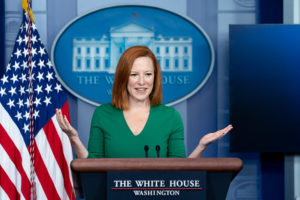
The gut instinct of Democrats in the White House to blame big corporations for inflation is getting pushback from a surprising place, the White House Council of Economic Advisors. Apparently, Democrats’ explanations of inflation are so preposterous, even their own economists object. The Washington Post reports:
When the prepared congressional testimony of a senior administration official was circulated inside the White House in recent weeks, it included a passage tying inflation to corporate consolidation and monopoly power.
That language was eventually taken out of the remarks before they were delivered. Members of the White House Council of Economic Advisers had raised objections to the idea that a spike in prices was due to corporate power, according to two people aware of the matter who spoke on the condition of anonymity due to fears of professional reprisals.
The alteration of the testimony highlights the tensions within the administration over whether the White House should blame corporate consolidation and monopoly power for price hikes. Some officials in the White House National Economic Council believe the administration could more aggressively advance that argument, and Democratic pollsters have told the White House that a populist economic message on corporate greed and prices broadly resonates with voters.
But economists inside the administration, particularly at the CEA, are uncomfortable with the push. “It’s been the war of the ‘track changes’ inside the administration over how much the White House can lean in on the extent to which competition and greed are driving inflation,” said one person briefed on the internal dynamics, who spoke on the condition of anonymity due to fear of professional reprisals.
Prices rose 7.5 percent in January compared to one year earlier, the biggest spike in 40 years. White House officials early last year said these price increases would likely just be temporary. But they were wrong, and the increases have persisted amid labor shortages, supply chain issues and robust consumer demand. These higher prices have eaten into wage increases and become one of the most dominant economic issues facing voters, putting the White House on the defensive as its attempts to curb inflation come up short.
Read more here.




